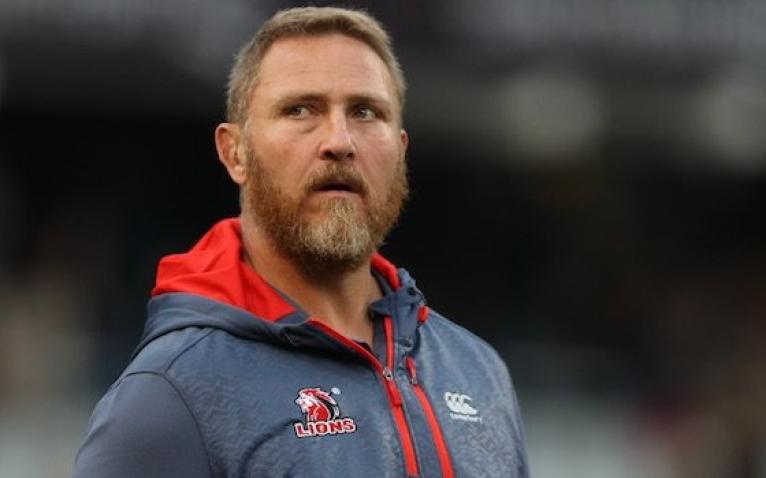Old hands vs new philosophers: The Super Rugby semifinals coaching battles

It’s only fair that most of the focus ahead of this weekend’s Super Rugby finals will be on the players but, as Scotty Stevenson writes, both crucial clashes will also be defined by a battle between the old and new schools of professional coaches.
Dave Rennie has never been one to mince his words. To be perfectly honest, he doesn’t usually dispense enough of them to make mince in the first place. When he does talk, he most often takes the opportunity to ask a question, and when I say ask a question I mean demand an answer. He’s what you might call the strong silent type, though give him a win and a beer and a guitar and he can carry a fine tune. His go-to conversational play is to make a statement and finish with an elongated “sooooo….” Leaving you to draw your own conclusions, which of course are the same conclusions Dave Rennie has already drawn, he’d just rather you said it, not him.
Scott Robertson is always talking because in his world there is always something that needs articulating. Either that or he uses conversation as a way to discharge enough of his reservoir of energy to ensure he doesn’t explode. Restless and relentlessly upbeat, the man known as Razor is just as happy fist-bumping his frontrowers as he is forensically dissecting a defensive screen. When he sends text messages they are punctuated with emoji. If there was an emoji for Razor it would be a guy on a surfboard holding a lightning bolt. He needs constant mental stimulation, and once told a player who was presenting to the team that he was boring everyone. Nothing like a bit of honesty, then.
There are similarities between the two coaches: they both command loyalty, they both have sensational playing rosters, they both have tasted provincial championship success – Rennie with Wellington and the Robertson with Canterbury – and they both have coached the New Zealand under-20 team to world titles. Yet, for all that, they are very different men who bring very different styles to their craft. If the pair were muppets, Rennie would be Rowlf the Dog and Robertson would be the entire Electric Mayhem ensemble.
Chris Boyd is a lot like Dave Rennie, though I cannot tell you how well he sings. Like Rennie he is from the old school, first coaching club rugby in Wellington in the 1980s and then taking the reins at the senior provincial level after Rennie’s tenure there came to an end in 2002. Boyd is a man who dresses a complicated mind in a cloak of simplicity and there is an artful direction in the way he coaches; he seems to be simultaneously adjusting the details while standing back and surveying the bigger picture. He coaches the way Dali must have painted Gala Contemplating the Mediterranean Sea, adding each brush stroke and then retreating to witness the hidden portrait of Lincoln come to fruition.
He is a traditional man who, with his assistants John Plumtree, Richard Watt and Dan Cron, has instilled in the Hurricanes a respect for graft and the hard yards. It’s worked. Under Boyd the Canes have twice been to the Super Rugby final and last year claimed a maiden championship. He has been able to alloy to the Hurricanes willingness to attack an awareness of how those opportunities are created.
In Johannesburg, Johan Ackermann has done the reverse. He has been able to unlock a creative instinct that was once buried in the belief that rugby was only about the hard yards and set piece dominance. Ackermann, like Robertson, has an affinity with his charges that comes predominantly from the fact he was once one of them – a Super Rugby player with the very team he now coaches. Like Robertson he has brought with him a different kind of energy, and a new level of success.

His players call him ‘Akkies’ and obviously love him. He told them after the loss to the Jaguares this year that he would grow a beard and only shave it off when they lost again. Presumably he will also shave it off if the Lions win the Super Rugby title because he leaves after this season to coach at English Premiership club Gloucester. He currently resembles a Nordic lumberjack yet his players say his formidable physique belies his caring and thoughtful approach.
For the Hurricanes, there is an inherent trust in Chris Boyd and his methods. He is a wise Yoda who has stood the test of time. For the Lions there is a desire to send off their big brother figure with a first-ever franchise title. Those motivations come with different emotional impacts.
And that is precisely why these semifinals have that added sense of intrigue. Each will pit a title-winning veteran coach against a new wave philosopher. The results could tell us whether the new age has dawned, or whether old school experience still counts in the coaching box.





























































